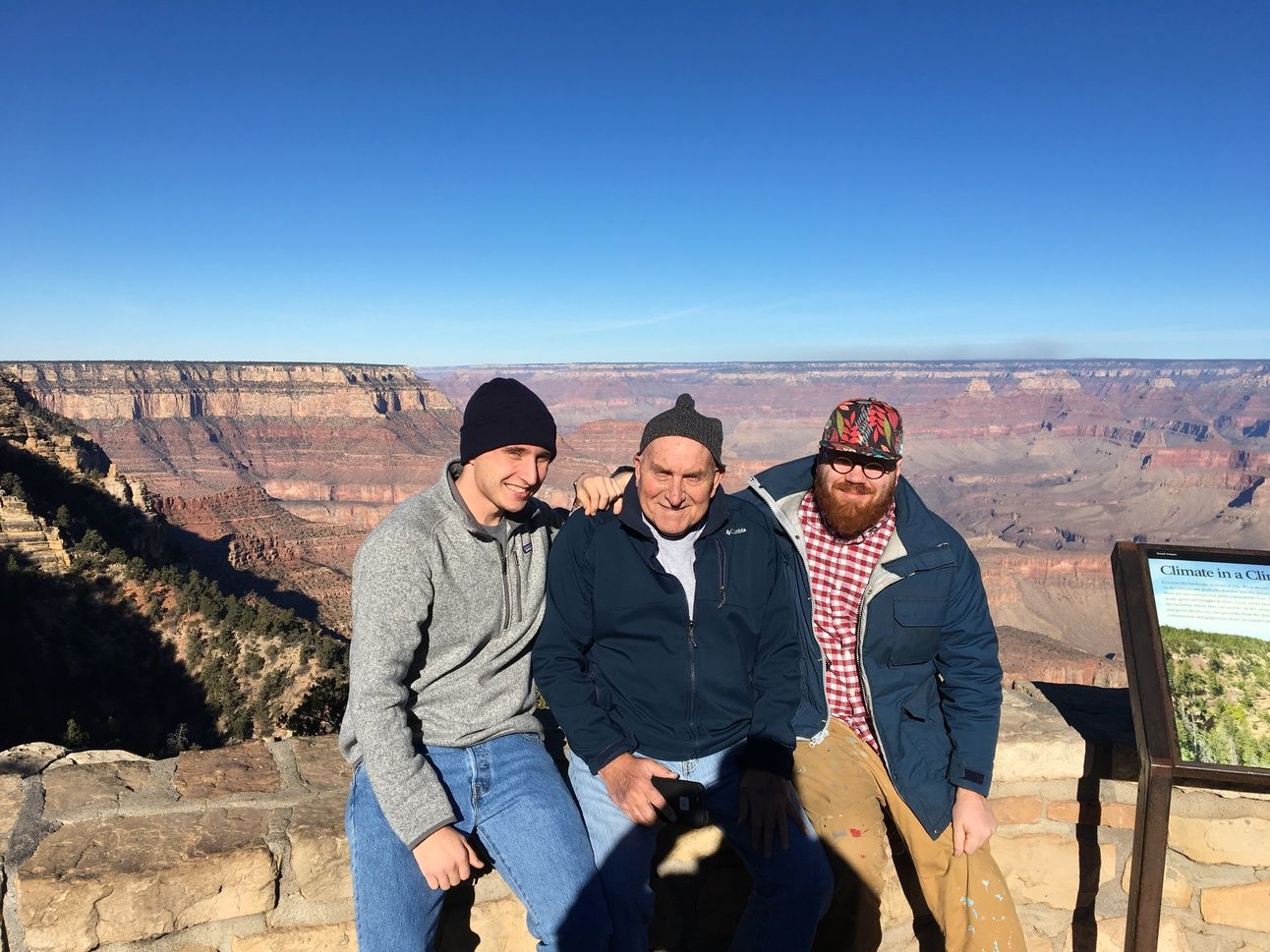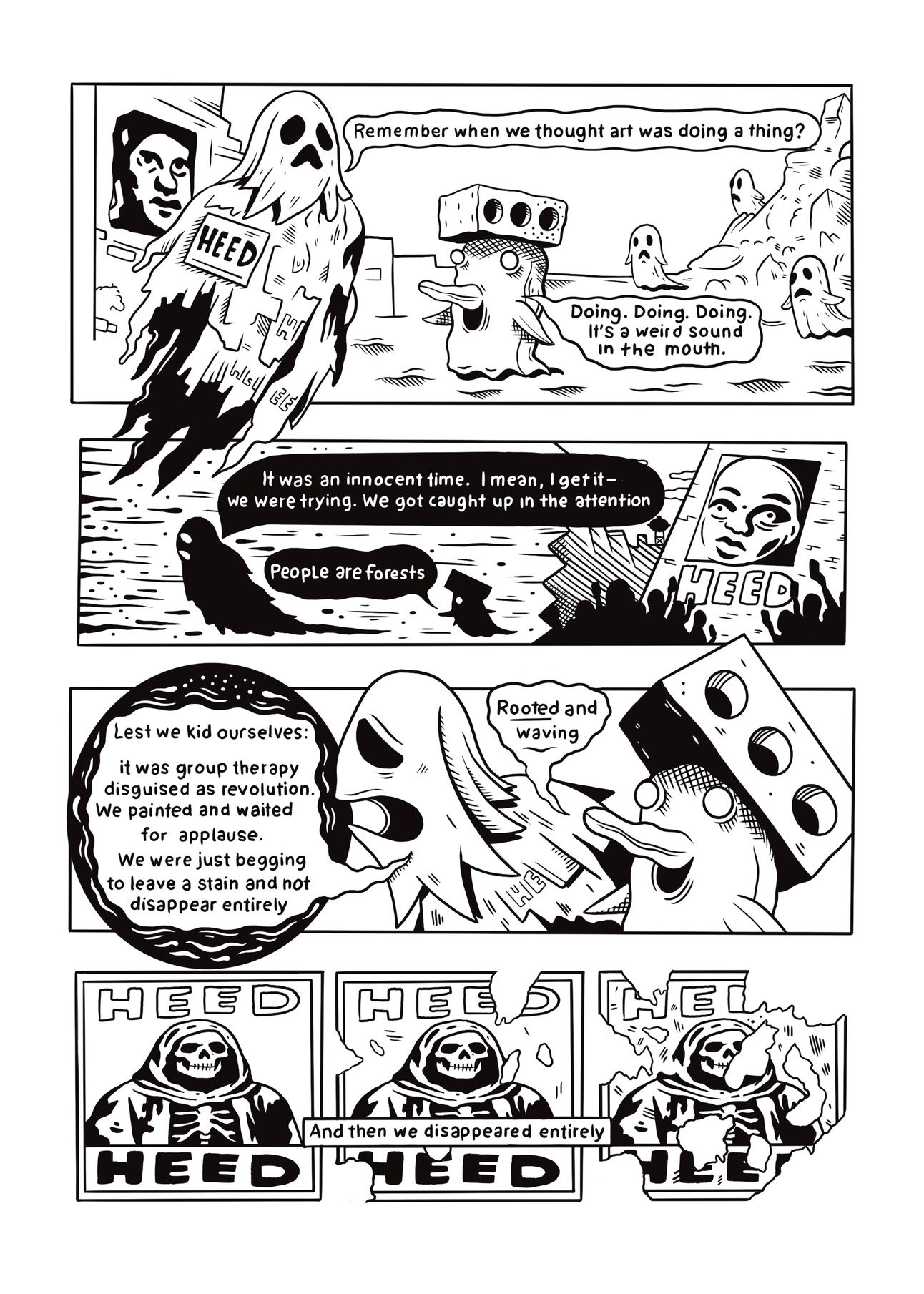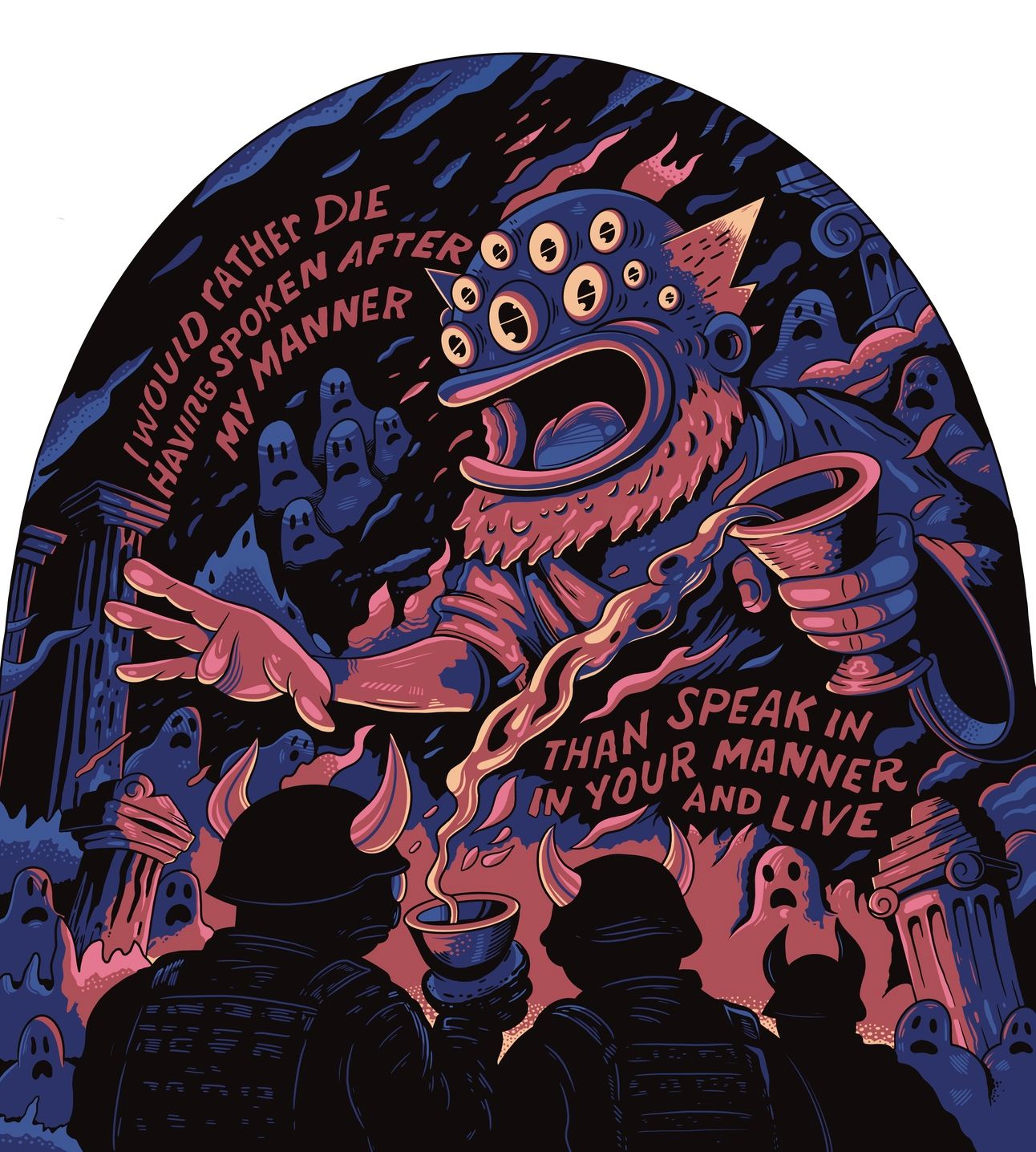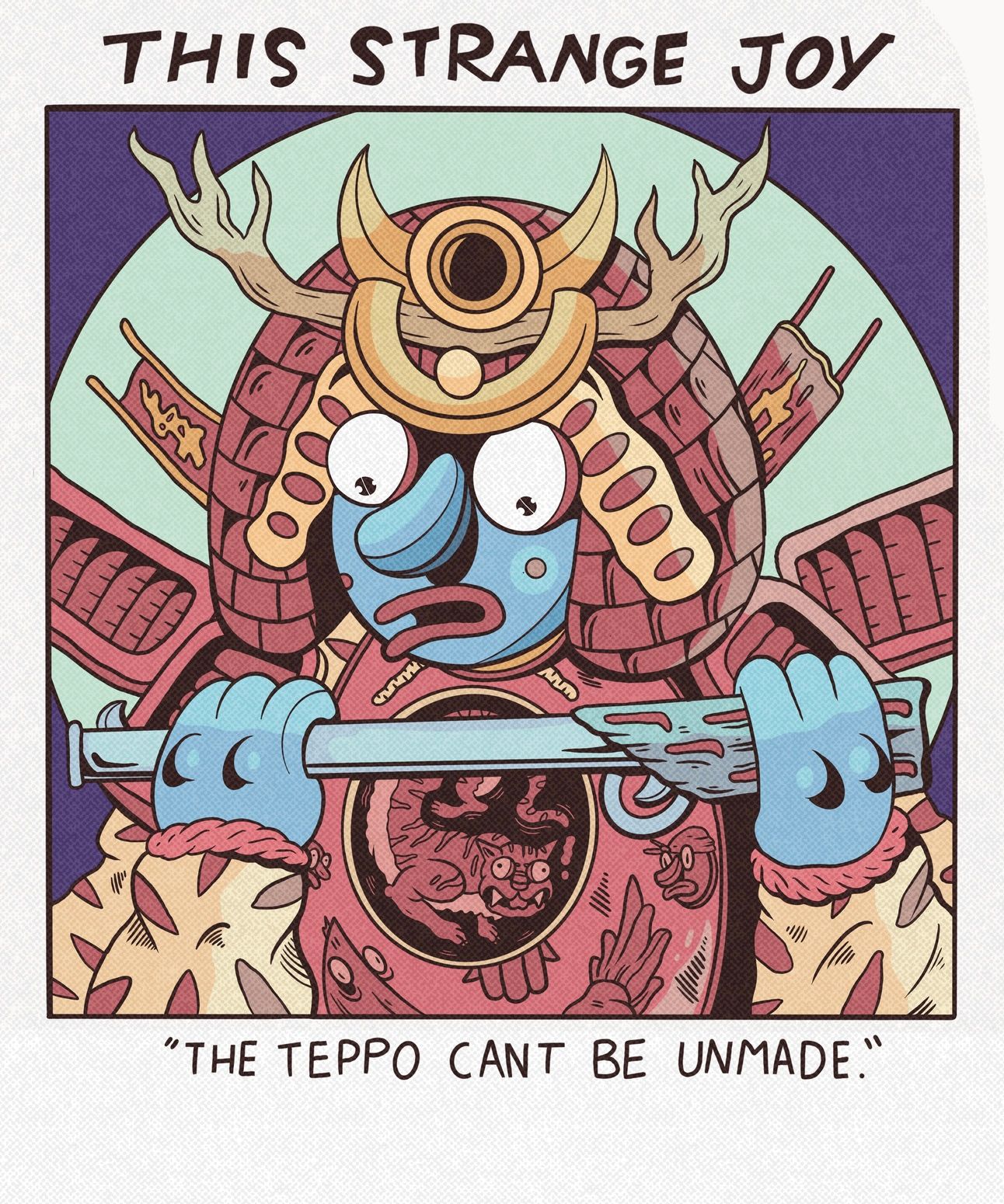- This Strange Joy
- Posts
- This Strange Joy #2
This Strange Joy #2
Keep on Rocking in the Free World
Field Notes
I have no idea what I’ve done since the last newsletter. It’s absurd for you to sit there and ask me (as I force myself through the second-story window of your email house, begging for attention).

You and Me From Clarissa Explains it All
(Skip to Dust Notes if you don’t feel like thinking about politics today—I totally get it.)
Little jobs, here and there. Freaking out—constantly—about the fall of the American Empire and, most importantly, how it affects me. But also feeling this strange compulsion to pretend everything is going to be fine. It’s like being on a plane, sitting on the tarmac while the cabin is engulfed in flames, but it feels rude to stand up and make a scene. So you stay seated. You let yourself cook alive. A universal metaphor? I don’t know. I’m bad at this.
Lately, I’ve been so wildly, unpleasantly worried that I cried watching Conan O’Brien accept the Mark Twain Prize. Obviously I should be on meds. It’s a Netflix special. But watch it anyway as you’re assigning me medications for being unwell. Despite the signature Conan skits and silliness, the speech carried a sincerity that hit me though out. It was a clear-eyed observation of what’s at stake in the U.S. as of early 2025. It was funny (in that dumb, charming Conan way), but there was no sugarcoating. In the Kennedy Center—where Donald Trump is now the board chair—Conan quoted Mark Twain repeatedly, reminding the audience of Twain’s hatred for bullies and jingoism. He acknowledged America's flaws and said that comedy—and our shared muck—is the only honest path forward. The speech spiraled from earnest to absurd: Conan talked to Twain (played by Will Forte), a mob of Twains then slow-danced across the stage, and Conan, Adam Sandler, and the Max Weinberg 7 covered Neil Young’s “Rockin’ in the Free World.”

What can I say, I’m emotionally unstable.
It was right around the dumb, earnestly gratuitous guitar solo that I started crying. Letterman had earlier described the night as one of the great moments in the “resistance,” and weirdly enough, it was. If not resistance, maybe a eulogy for a time in America that is coming to a close.
I grew up watching Conan. This was the same intelligent idiot that I watched every night through my teens. It was not just that he spoke directly on a situation that feels very real to me. It’s that he seemed to purposely make it in the style he had done when nothing was at stake. The consistency moved me. I don’t know if that makes sense but I’ll try to explain myself.
I’ve been depressed about the absolute absence of hope I feel for this country. Some of my friends don’t feel this way. Some always have. Both groups might call me a horse faced dummy with bad skin. And maybe they’re right. But this all feels like a familiar chapter from the decline of empires. The slow slide toward something less livable for someone like me.
Earlier this month, my friend and former teacher Dr. Bolin told me she writes for history. She doesn’t worry about who’s reading it now—most people aren’t. People aspire to be content creators more than authors or academics. But if times change and someone wants to understand Memphian resistance to XAI in 2025, Nona’s work will be there. Oddly enough, Conan’s speech felt similar for me. It won’t change anything, but it was made with both legacy and posterity in mind. Whether it was rebellion or eulogy, it meant something that he faced this moment without hiding his fear, or his humor, or his anger. That he didn’t adopt a new voice to address the crisis—he just kept being beautiful, horse faced, bad skin, Conan.
I want that for artists. For creatives. For myself. I don’t want to say “everything will be okay,” because I don’t feel that. And I think it undermines the power of art when you feel a lie in it. But I do want to say that whether this is the end or not, there’s power in meeting it upright and in your own voice. I believe in writing for history. I believe resistance still has power, even if it holds no remedy.
Dust Notes
I took my dad to the Grand Canyon once, and I remember being frustrated at how unfathomable the scale of it was. I feel the same now about the way AI is about to reshape the arts. I feel like I’m about to join a mustachioed lineup of vinyl collectors, typewriter hobbyists, and men at the bar who insist on printing their zines on a Gutenberg Press. Selectively Amish craftsmen.
I can’t see how there will be a sustainable economy for illustration in ten years, outside of romantic pitches about the unique value of tactile objects. And that’s a very specific worry for a very specific kind of work. To be clear: I think AI is awe-inspiring and empowering. But we’re absolutely right to be suspicious of rapid technological advancement. We’re evolving faster as a society of tools than we are as a society of ethics—and the powerful have never shown restraint in weaponizing new technologies. It’s truly wild that we’ve built god-tools before universal healthcare.

Bad Hat Dudes
Ghost Signal
Top-secret progress shots from my upcoming graphic novel, Ghosts —
(See Issue 1 of This Strange Joy for more on Ghosts) https://birdcappa.beehiiv.com/p/this-strange-joy-1

SSP (Shameless Self Promotion)
I have a silkscreen coming out!

The Apology of Socrates - 2025
The Apology of Socrates reimagines the death of the philosopher not as a historical reenactment, but as a surreal spectacle. I wanted to create a visual myth—a fever dream—where Socrates becomes a spectral, many-eyed figure offering hemlock to the very guards who will carry out his sentence. The figures below are armored and complicit, perhaps unaware that the poison flows toward them too. Around them, ruined columns and mournful ghosts create a collapsing civic stage—suggesting the decay of democratic ideals. It’s chaotic and ceremonial, like a martyrdom staged in a haunted amphitheater.
This piece was born from the pressure artists feel right now—to self-censor, to conform, to survive. I didn’t want to make a clean critique. I wanted The Apology of Socrates to lean into the absurdity of resistance—how it can feel ridiculous and theatrical, but still necessary. It comes from asking myself what survival even means if it costs us our voice. In a moment where dissent is increasingly penalized, and cultural speech is treated as, if not dangerous, then at least financially unwise, this piece is an offering. A reminder of the ancient refusal to obey. A gesture to those still speaking in their own manner.
The Apology of Socrates will be a 7 layer silkscreen with a run of 35 prints, 5 of which will be hand embellished.
Subscribers to This Strange Joy will get first notice when the print drops. As always, you can find it at:
/
Thank yall for subscribing ❤️ - Bird
